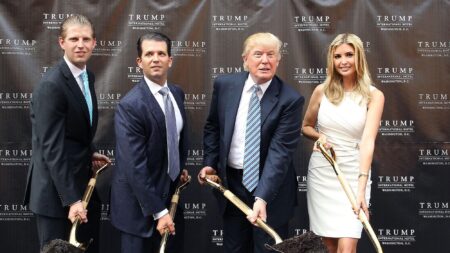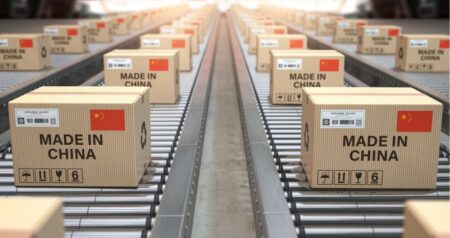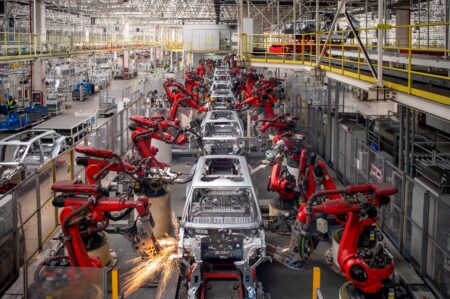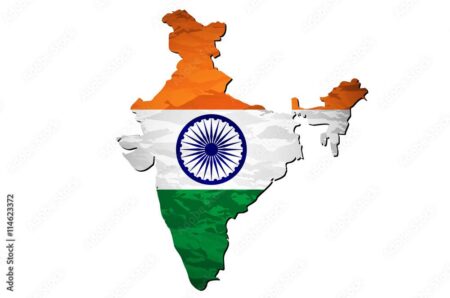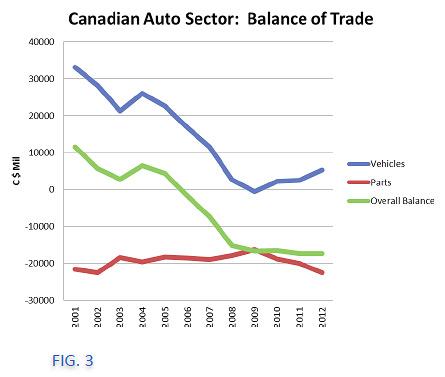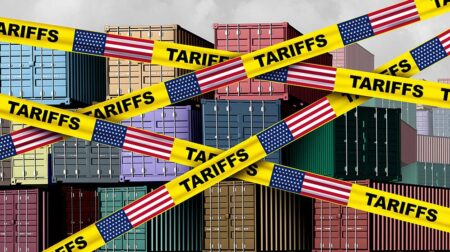India is embarking on a bold mission to break China’s dominance in rare earth magnets. By aggressively boosting domestic production and strengthening supply chains, the government aims to reduce reliance and supercharge its technology and defense sectors
Browsing: manufacturing
China’s fierce electric vehicle battle is challenging Thailand’s ambitious local production targets, as manufacturers sprint to seize a share of Southeast Asia’s booming EV market
Foxconn has withdrawn its Chinese workforce from its India operations, disrupting Apple’s production plans amid escalating geopolitical tensions and mounting supply chain challenges, Bloomberg reports
China’s latest PMI data paints a vivid picture of a manufacturing sector grappling with persistent challenges. Sluggish domestic demand and escalating global trade pressures are fueling this ongoing slowdown, the Wall Street Journal reports
The Trump Organization has removed the “Made in the USA” label from its gold T1 smartphone, CNBC reports. This move marks a shift in branding strategy amid growing curiosity and speculation about the true origin of the device
Trump’s envoy to China raises a red flag on growing dangers in foreign supply chains, calling for a bold strategic overhaul to reduce reliance. This urgent warning highlights escalating economic tensions in an increasingly unpredictable global trade environment
As global supply chains strain to keep up, companies are racing to export goods from China, propelled by soaring demand and intricate logistical hurdles. CNN explores the challenges and groundbreaking strategies powering this crucial flow of commerce
China’s tightened grip on rare earth magnets has sent shockwaves through India’s auto industry, igniting urgent appeals to the government for support in securing these crucial components amid soaring EV demand
China’s factory activity stumbled in May, weighed down by rising US tariffs. This downturn underscores growing hurdles for the manufacturing sector amid ongoing trade tensions, Reuters reports
Brazil has launched a â‚ą300 crore lawsuit against China’s BYD, accusing the company of imposing “slave-like” working conditions on its employees. This bold legal move shines a spotlight on mounting concerns over labor rights in global business practices
International Paper has revealed plans to shut down five packaging sites across the UK, driven by tough market conditions and rising operational costs. This decision affects multiple locations and marks a significant turning point for the regional packaging industry
In a bold move to safeguard its domestic steel industry, Brazil has reintroduced tariffs and quotas on steel products. This strategic decision comes in response to the ever-changing global market landscape, aiming to empower local manufacturers. As trade tensions simmer and challenges persist within the sector, Brazil is taking decisive steps to ensure its steel industry remains resilient and competitive.
Spain’s steel production has experienced an impressive surge of 6.1% year-on-year in the first four months of the year, as revealed by data from GMK Center. This remarkable increase highlights a vibrant recovery within the sector, showcasing not only a rebound in industry but also signaling broader economic growth and escalating demand.
CNBC’s “Inside India” newsletter delves into the intriguing dynamics of the Make-in-India initiative. It reveals that although U.S. tariffs on China could open doors for India, a host of structural challenges and fierce competition from other countries might stand in the way of assured success.
As Canada’s auto sector navigates a shifting landscape with its biggest customer exploring new markets, industry experts are rallying behind an ambitious plan. This strategy focuses on revitalizing domestic production, boosting investments in electric vehicles, and enhancing workforce training to ensure a thriving and sustainable future for the industry.
Even with tools proudly stamped “Made in USA,” they aren’t shielded from the effects of tariffs. The surge in material costs and ongoing supply chain hiccups can still drive prices up. However, savvy consumers can navigate this tricky landscape by hunting for local alternatives and taking advantage of discounts, ensuring they get the best bang for their buck!
Thales, Radiall, and FoxConn are joining forces to explore an exciting opportunity: the establishment of a cutting-edge semiconductor assembly plant in France, as reported by Reuters. This ambitious initiative is set to enhance Europe’s semiconductor production capabilities at a time when global demand for advanced technologies is skyrocketing
India’s semiconductor industry is on the rise, driven by exciting government incentives designed to supercharge local manufacturing. Major players such as Intel and TSMC are setting their sights on investments, transforming India into a crucial player in the global semiconductor supply chain.
China has taken a bold step by imposing tariffs on plastic imports from the US, EU, Taiwan, and Japan, citing concerns over dumping practices. This move signals a dramatic escalation in trade tensions as Beijing seeks to safeguard its domestic industry amidst the backdrop of ongoing global trade disputes
New tariffs aimed at revitalizing American manufacturing are unexpectedly pushing businesses to seek opportunities in Canada. Companies are highlighting the allure of lower production costs and more favorable trade conditions as major reasons for their move, posing a significant challenge to U.S. policy objectives.





